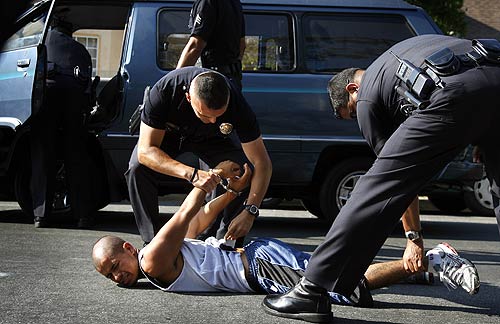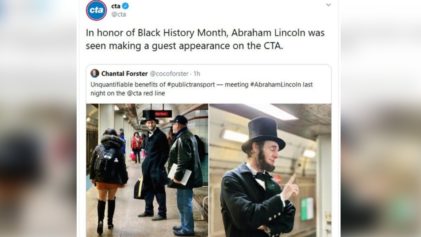When the Chicago Police Department sent one of its commanders to Robert McDaniel’s home last summer, the 22-year-old high school dropout was surprised. Though he lived in a neighborhood well known for bloodshed on its streets, he hadn’t committed a crime or interacted with a police officer recently. And he didn’t have a violent criminal record, nor any gun violations. In August, he incredulously told the Chicago Tribune, “I haven’t done nothing that the next kid growing up hadn’t done.” Yet, there stood the police commander at his front door with a stern message: If you commit any crimes, there will be major consequences. We’re watching you.
What McDaniel didn’t know was that he had been placed on the city’s “heat list” — an index of the roughly 400 people in the city of Chicago supposedly most likely to be involved in violent crime. Inspired by a Yale sociologist’s studies and compiled using an algorithm created by an engineer at the Illinois Institute of Technology, the heat list is just one example of the experiments the CPD is conducting as it attempts to push policing into the 21st century.
Predictive analytical systems have been tested by police departments all over the country for years now, but there’s perhaps no urban police force that’s further along — or better funded — than the CPD in its quest to predict crime before it happens. As Commander Jonathan Lewin, who’s in charge of information technology for the CPD, told The Verge: “This [program] will become a national best practice. This will inform police departments around the country and around the world on how best to utilize predictive policing to solve problems. This is about saving lives.”
But the jury’s still out about whether Chicago’s heat list and its other predictive policing experiments are worth the invasions of privacy they might cause and the unfair profiling they could blatantly encourage. As Hanni Fakhoury, a staff attorney at the Electronic Frontier Foundation, told The Verge: “My fear is that these programs are creating an environment where police can show up at anyone’s door at any time for any reason.”
There are a couple obvious worries here. “First of all, how are we deciding who gets on the list and who decides who gets on the list?” Fakhoury asks. The case of Robert McDaniel worries him. “Are people ending up on this list simply because they live in a crappy part of town and know people who have been troublemakers?” Answers to those questions need to be public, he says.
Read the full story at theverge.com



